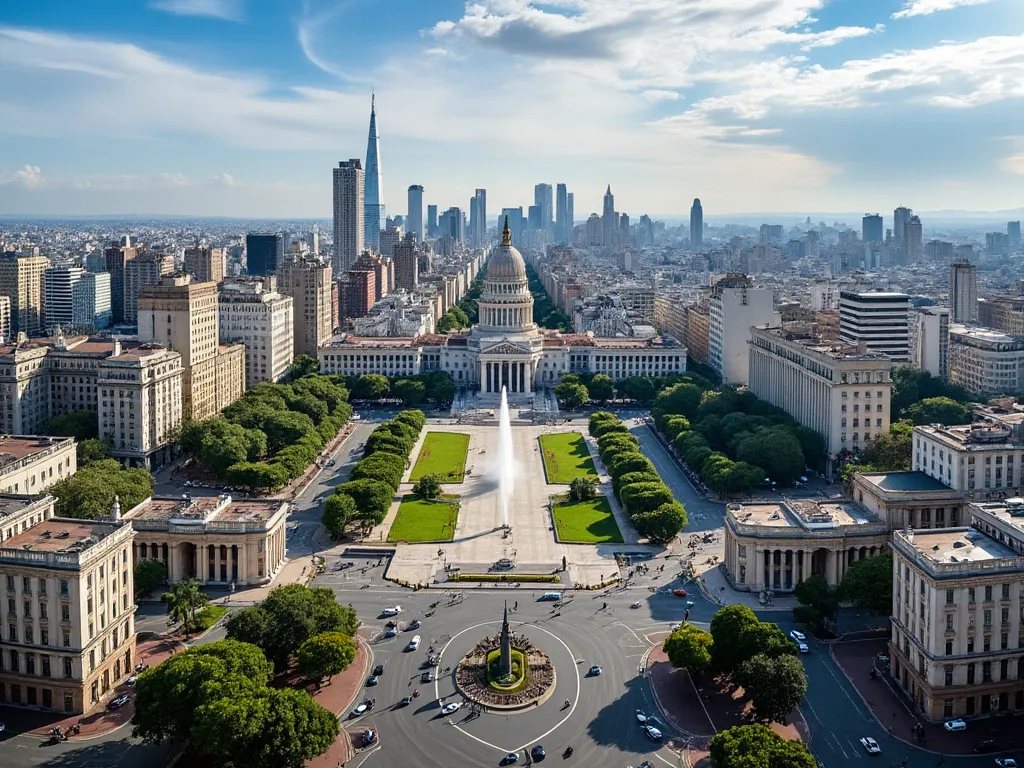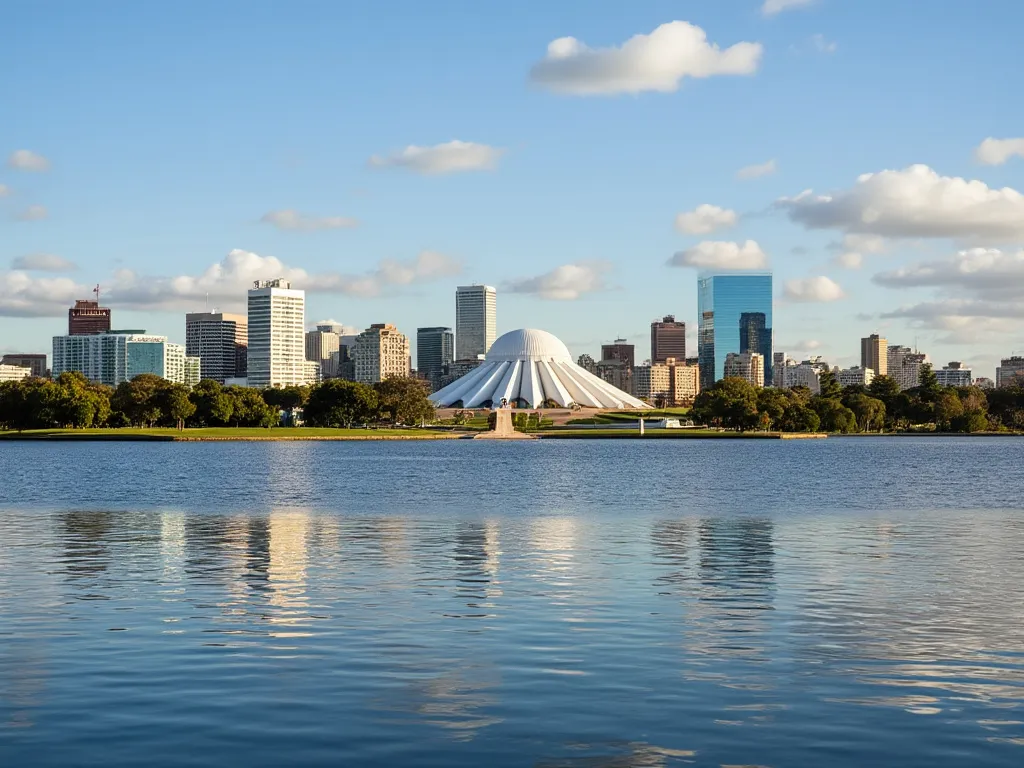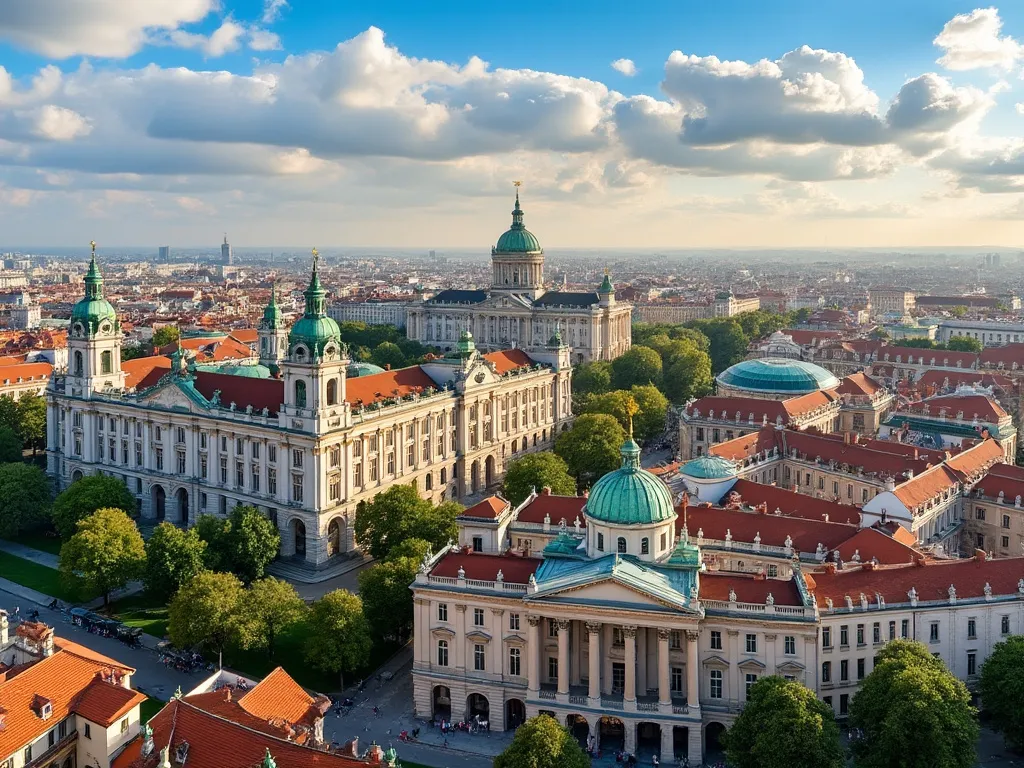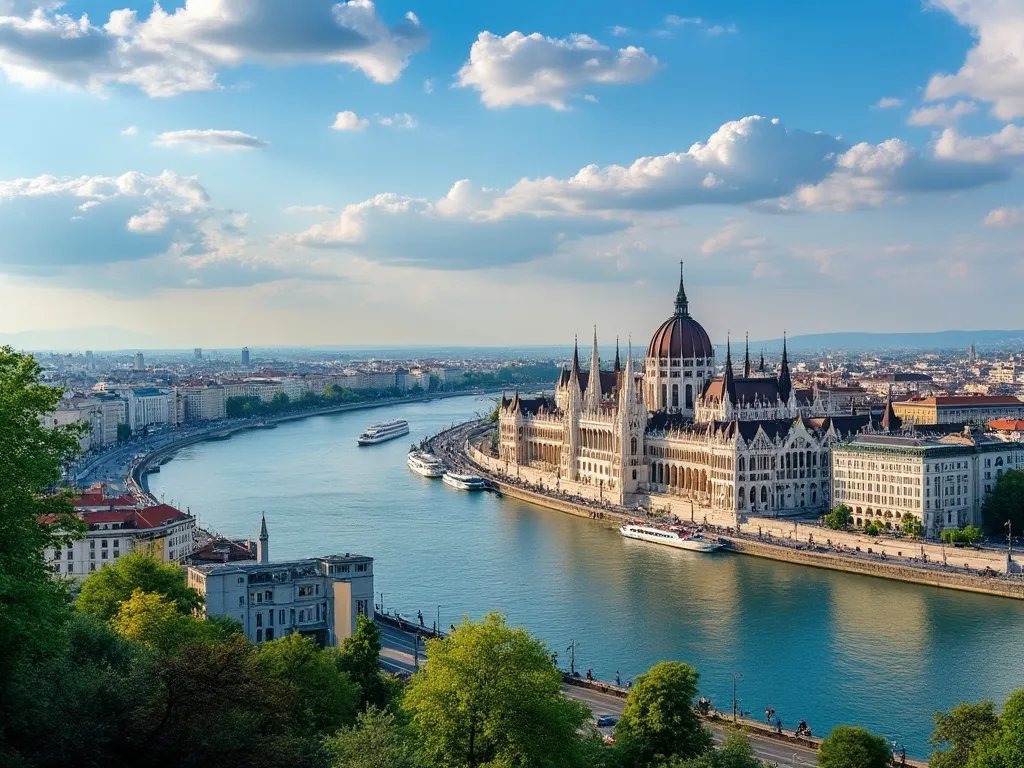
Buenos Aires, the vibrant capital of Argentina, is a city like no other. Known for its stunning European-style architecture, rich cultural heritage, and passionate inhabitants, Buenos Aires is a destination that will leave you enchanted. From the colorful streets of La Boca to the upscale boutiques of Recoleta, this city has something to offer for every interest and style.
Buenos Aires information
| Country | 🇦🇷 Argentina |
| City Population | 3,063,973 (urban area), 15,647,000 (metro area) |
| City Coordinates | 34°36′S 58°23′W |
| City Area | 203 km² (78.5 sq mi) |
| Climate | Humid subtropical |
| Language | Spanish |
| Currency | Argentine peso |
| Time zone | UTC-3 (ART) |
| Proximity to other major cities | Montevideo (540 km), Santiago (1,369 km), Brasília (2,050 km) |
Interesting facts about Buenos Aires
- The city is often referred to as the "Paris of South America" due to its stunning French-inspired architecture.
- Buenos Aires is home to the world's widest avenue, the Avenida 9 de Julio.
- The city has a vibrant expat community, with many foreigners drawn to its unique cultural scene and high standard of living.
Tourist attractions in Buenos Aires
- La Boca neighborhood, known for its colorful street art and tango performances.
- The Teatro Colón opera house, one of the world's most famous opera houses.
- The Recoleta Cemetery, a grand burial ground for many of Argentina's most prominent citizens.
- The Plaza de Mayo, a historic square that has been the site of many important events in Argentine history.
Historical background of Buenos Aires
Buenos Aires was founded in 1536 by Spanish conquistador Pedro de Mendoza, and its early history was marked by conflicts with indigenous peoples and struggles for independence. The city grew rapidly during the 19th century, becoming a major port and commercial center. The late 19th and early 20th centuries saw a massive influx of European immigrants, particularly from Italy and Spain, who helped shape the city's unique cultural identity.
Geographical location of Buenos Aires
Buenos Aires is located in the eastern part of Argentina, along the southern coast of the Río de la Plata. The city is situated on the Pampas, a vast grassland region that stretches across much of Argentina. The urban area of Buenos Aires is bounded by the Rio de la Plata to the east and the Río de las Conchas to the north.
Cultural significance of Buenos Aires
Buenos Aires is a city that pulsates with culture. From its world-renowned tango music and dance to its vibrant arts scene, this city is a true melting pot of creativity. Visitors can experience the city's cultural richness by attending a performance at the iconic Teatro Colón opera house, exploring the street art scene in La Boca, or sampling the city's legendary asado cuisine.
Economic importance of Buenos Aires
Buenos Aires is the economic hub of Argentina, accounting for nearly a third of the country's GDP. The city is a major center for finance, commerce, and industry, with a diverse range of sectors including textiles, food processing, and automotive manufacturing. Tourism also plays a significant role in the city's economy, with visitors drawn to its rich history, cultural attractions, and vibrant nightlife.
Conclusion on Buenos Aires
Buenos Aires is a city that will captivate and inspire you, with its rich history, vibrant culture, and passionate inhabitants. From its stunning architecture to its world-class museums and restaurants, this city has something to offer for every interest and style. Whether you're a history buff, a foodie, or simply a traveler looking for a new adventure, Buenos Aires is a destination that is sure to leave you with unforgettable memories.
 Cairo
Cairo
 Canberra
Canberra
 Bucharest
Bucharest
 Budapest
Budapest